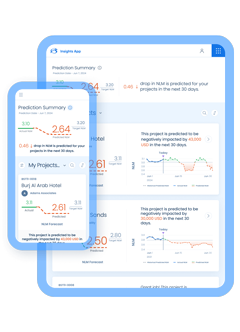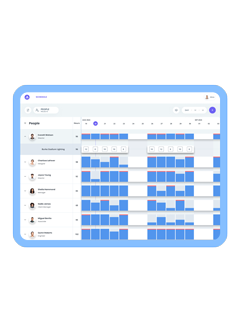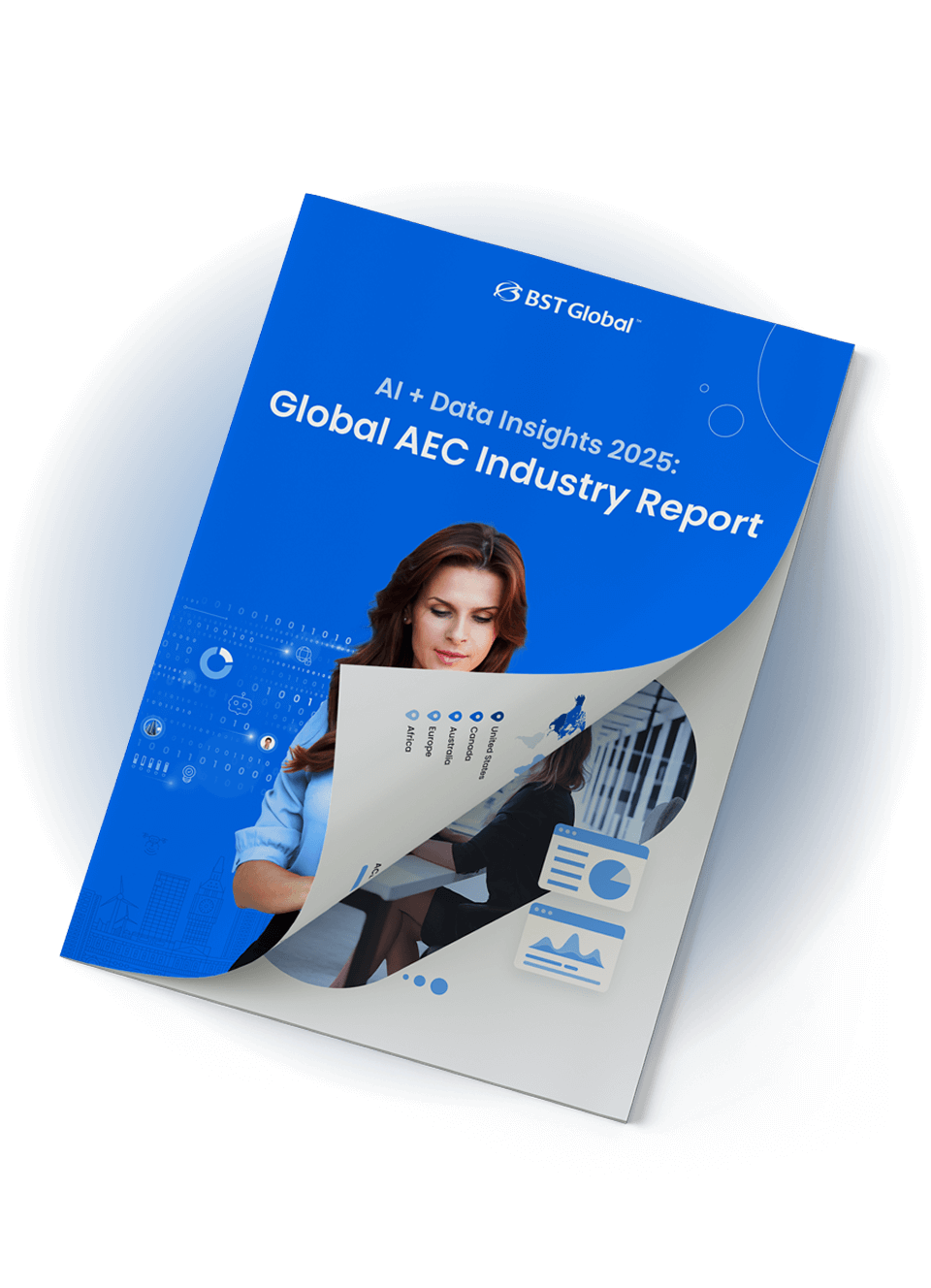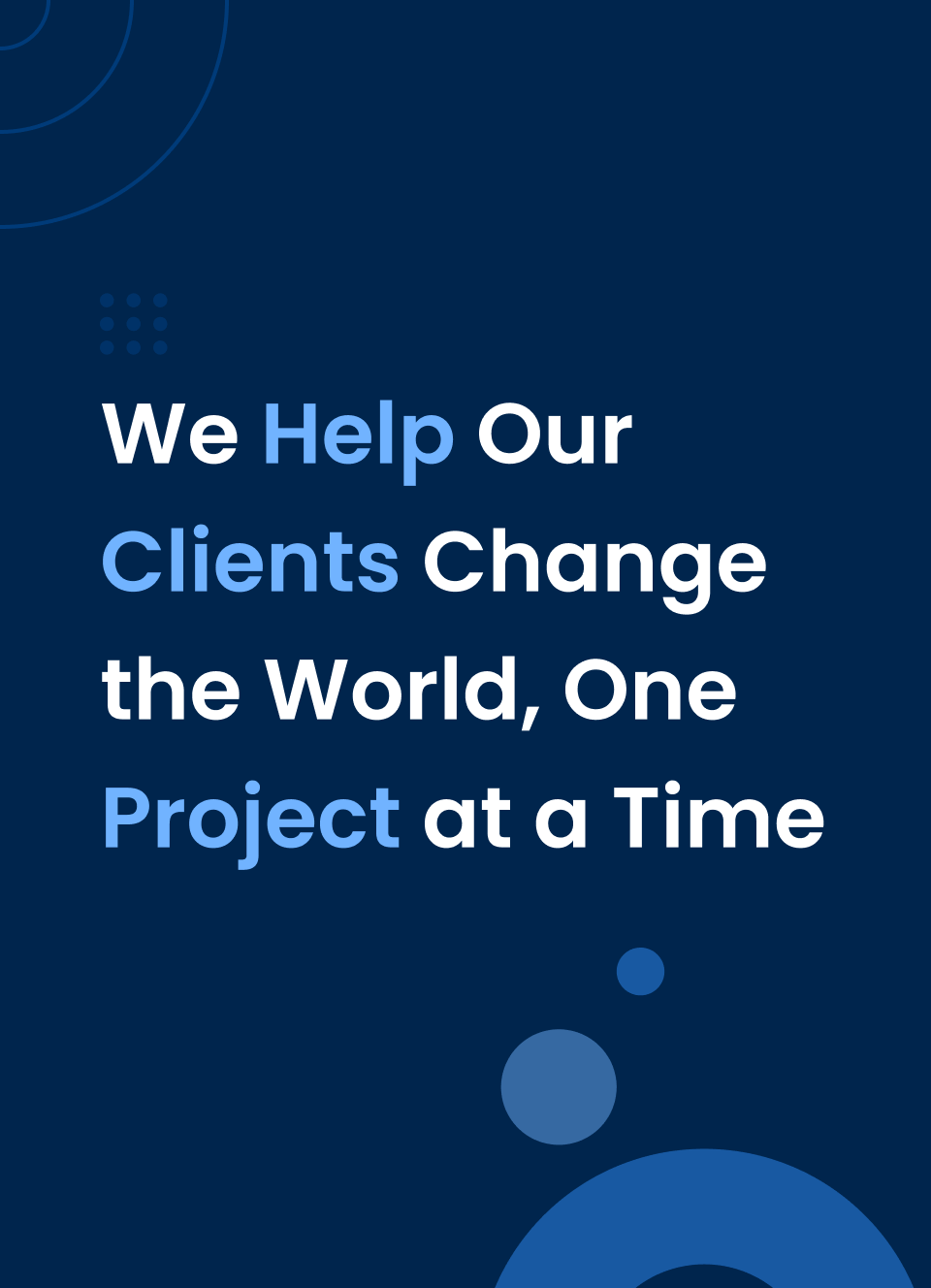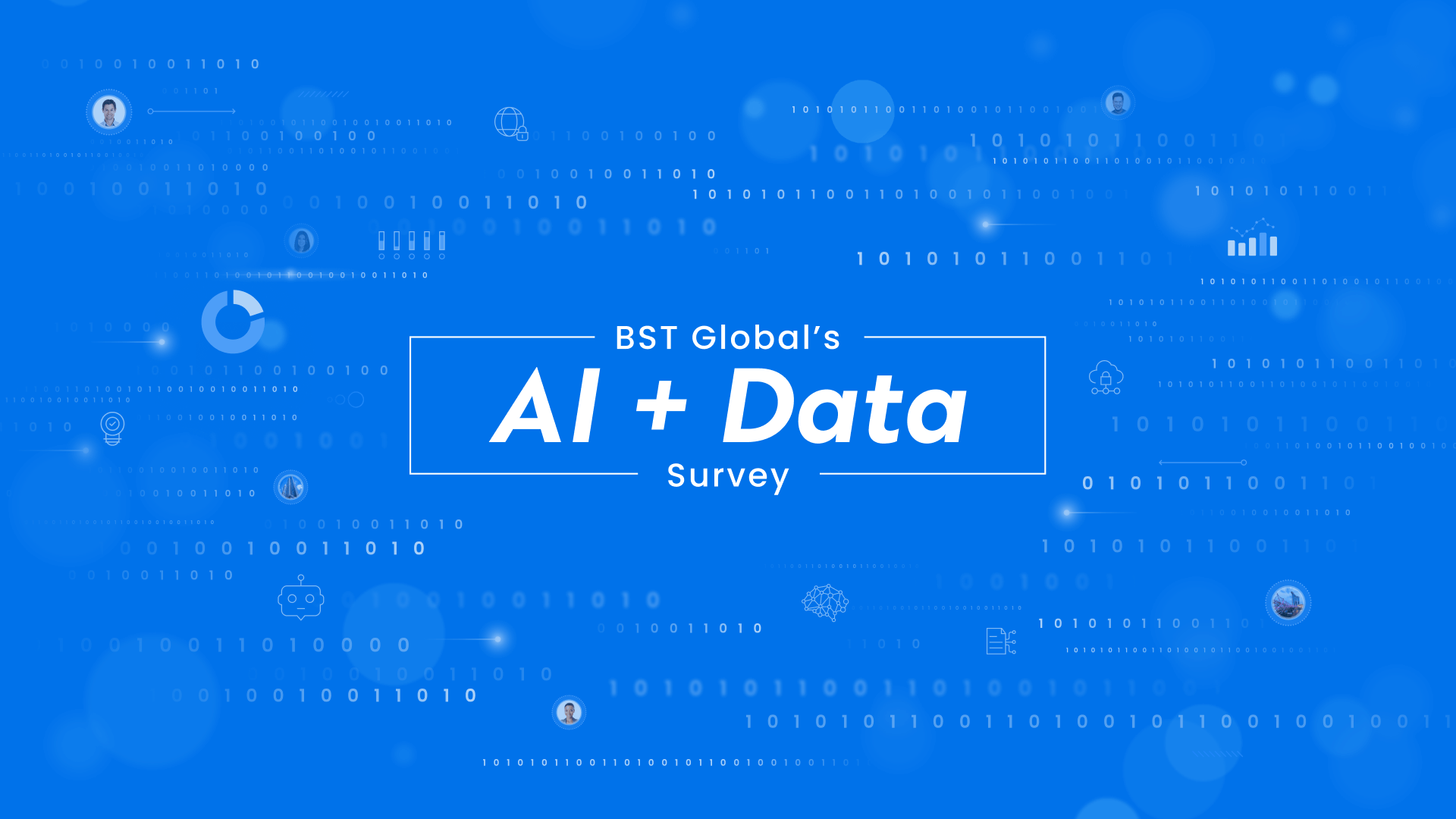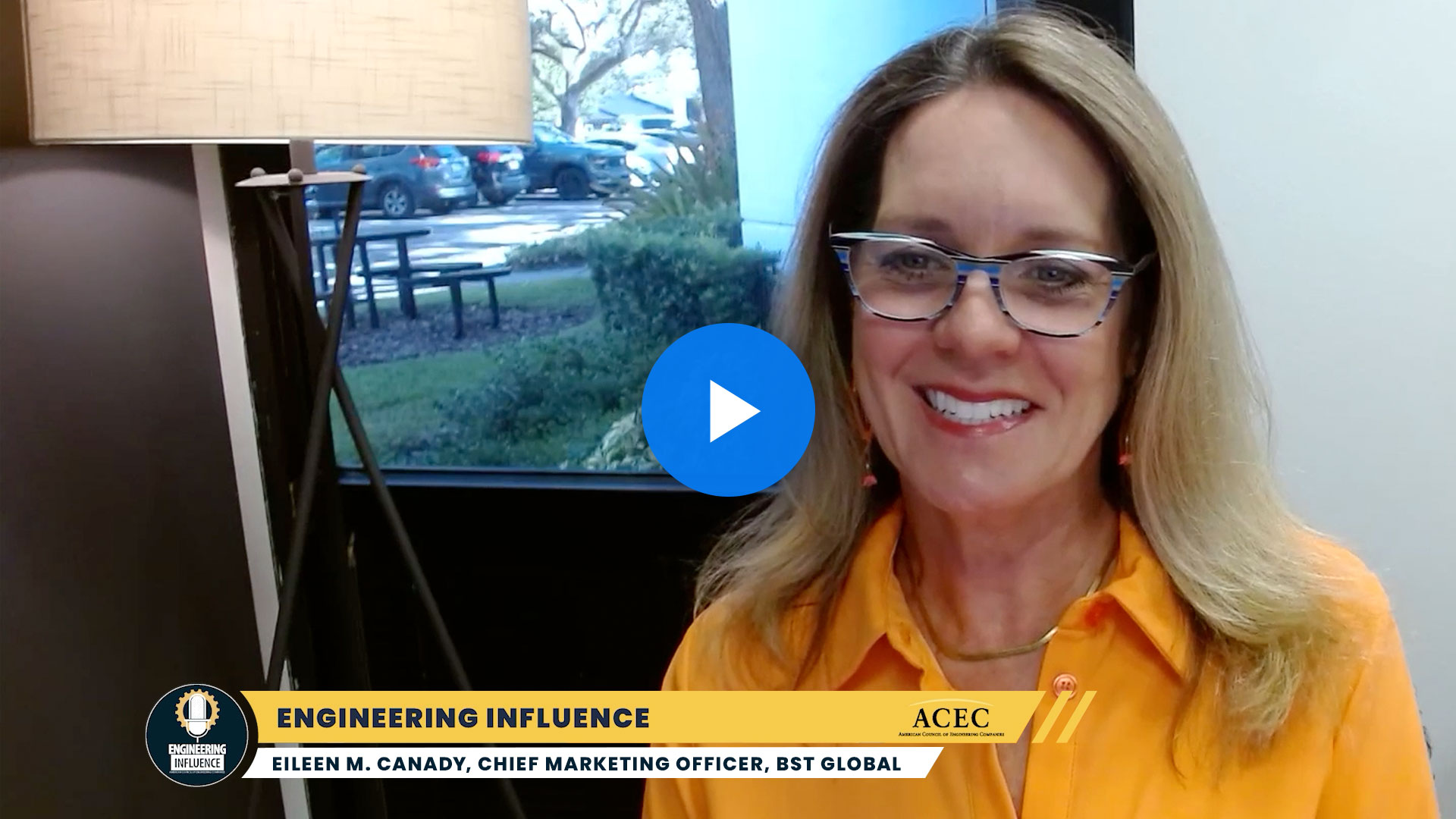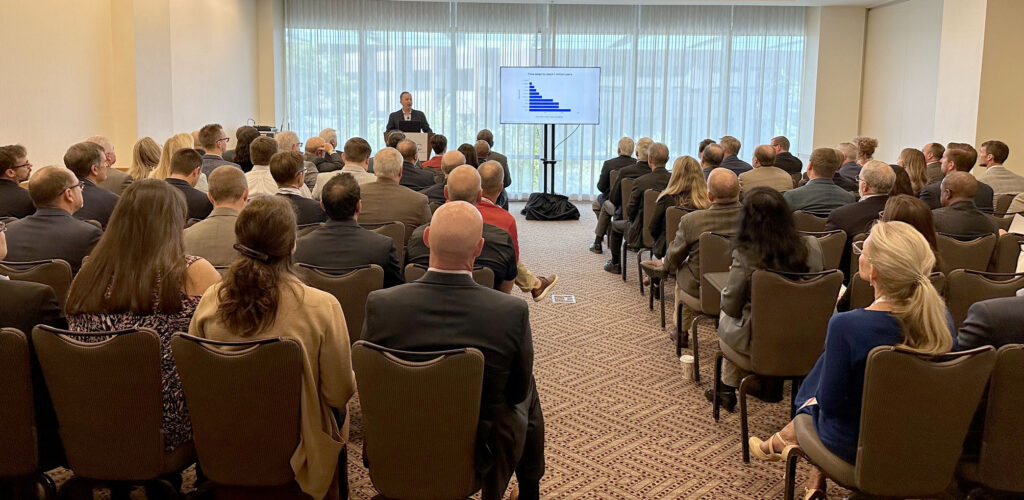
At the ACEC 2023 Fall Conference in Austin, TX, engineering industry executives had the unique opportunity to network with their peers, gain new insight from tailored education sessions and hear from inspirational keynote speakers. The conference took place in mid-October, and BST Global had two opportunities to share AI insights with attendees.
Partner Presentation
On Monday, October 16, BST Global CEO Javier A. Baldor presented a morning breakout session titled “How AI + Big Data Will Transform the AEC Industry.” Javier shared that the data-driven consultancy of the future requires a strategy centered on three core tenets:
- Embracing breakthrough innovations like ChatGPT through education and action
- Becoming data-driven by defining a holistic big-data strategy
- Investing in AI and machine learning to gain predictive, project-based insights
By adopting these emerging technologies and processes that embrace data intelligence, team intelligence and project intelligence™, the data-driven consultancy of the future is not only within reach, it can truly be realized.
With a packed house, Javier opened the discussion up for questions.
| Question: What kind of person would make a great Chief Data Officer (CDO)? What does their background look like and what certifications do they have? | |
 |
“A CDO has an excellent understanding of big data, analytics and machine learning. They also may not come exclusively from our industry — we’re seeing firms hire leaders from other industries. That’s what we did at BST Global. The head of our AI and analytics practice actually worked for Perot Systems and IBM, and was a consultant for major firms in other industries prior to joining our team. So, think outside the traditional box. I will tell you that this is the hottest role in demand right now!” |
| Question: How do you see associations like ACEC on a national level helping to provide really large data sets to help in generative AI? | |
 |
“That’s a real opportunity! ACEC has done a great job at taking that initial step by recognizing that this technology is really important. This industry has a tremendous data repository that can be mined and leveraged. I can’t stress the value of that enough! Look at companies like Meta and Google. They are not in the social media business — they’re in the data business and the advertising business. Start to think through the business model and about monetizing your data. Have a stake in that data throughout its lifecycle.” |
| Question: Some government agencies won’t allow you to use an OpenAI platform but instead require an enterprise platform. Can you talk about that further? | |
 |
“I can imagine why they would not want their data in the public domain. That’s not going to work. The Azure OpenAI Service and ChatGPT Enterprise represent the beginning stages of addressing a consultancy’s rightful concern over placing sensitive internal and client-secure data in the public domain. They are very smart companies and they realize that this fear is real and they need to take meaningful steps to mitigate this risk. Now, what they are saying is that it will be your data within the four walls of your organization, and it’s stunning. I don’t know if many of you have worked with ChatGPT as an example, but download it and look at the YouTube videos so you can understand what it does. It’s very early days but there’s a lot of promise there.” |
| Question: What does your crystal ball say as to the amount of design that will be done by AI in five or 10 years? What percent? | |
 |
“I’ve heard people speculate that 40% would be done by AI and others speculate as high as 95%. Who knows? The ability of these technologies is just stunning! Now, I will add that there needs to be oversight — there still needs to be QA/QC function and process by an engineer — and that’s not going away. But the question I would ask you to consider is this: What will the business model look like and how do you monetize it? Otherwise, it’s a race to the bottom. Let’s say a 30% efficiency gain is introduced by AI. That’s a huge number. What does that business model look like, and are you as a firm going to give away that value or are you going to move to lump-sum pricing, subscription pricing, different data offerings or something else to retain it? What a prize there! If firms don’t start to think that way, they could be left in a monolithic hours-based business model while others are in a completely different game.” |
Technology Committee Panel
Later that afternoon, Javier joined a distinguished technology committee panel on “Changing the Game With Technology – Perspectives From Industry Partners.” Raj Arora, CEO at Jensen Hughes and Chair of ACEC’s Technology Committee, joined three industry partners — Javier, Kevin Soohoo from Egnyte, and Jim Jacobi from Walter P Moore Technology — to discuss how digital solutions will change the way we work and deliver value to our clients. The panel guests shared their perspectives on AI and other technology trends along with the impact it will have on productivity, business intelligence and information security.
Read on for some highlights of that discussion.
| Question: How is BST Global helping the AEC industry? | |
 |
“BST Global has historically been an ERP software company. It’s what we’ve done for the past 52 years and will continue to do. In recent months, however, we’ve moved into what we’re calling ‘project intelligence™.’ That is leveraging AI-powered solutions to offer predictive perspectives and insights on projects and project team members that not only connect with BST Global’s ERP product but other ERP systems as well. We also have a Work Management and Resource Management solution now that can similarly connect with BST Global’s offerings and complement other ERP systems. We want to bring project intelligence™ to all consultancies around the world, regardless of their ERP platform. We see a big prize focusing on project operations in our industry.” |
| Question: We know about what trends are happening. Generative AI and ChatGPT are on everyone’s mind, along with others. Where do you see the industry going in the years to come? | |
 |
“I really think there are three themes to consider. ChatGPT is going to fundamentally transform the way work is developed, designed, deployed and managed — every aspect of how work is done at an engineering consultancy is going to dramatically change. One could argue, with those productivity gains (which could be around 40% depending on your source), what are you going to do with that efficiency? Are you going to keep that or transfer it to the client? So, ChatGPT is really a big thing to understand. There have been security concerns which are being mitigated by Azure OpenAI Service and ChatGPT Enterprise to make it more secure and accessible. I think our industry is also going to move away from being in the business of engineering and become a data business. The ability to leverage and understand that is going to be very key. You’re seeing that already with the moves Accenture and other tech companies are making by coming in from the outside and buying firms, combining deep data expertise with acquired domain engineering knowledge, which is game-changing. The last thing I’ll leave you with is the notion of a data-driven consultancy. Everything in this industry right now has been done the same way for the past 30 years. Everything is based on a historical perspective for projects and that’s going to fundamentally change. Everything is going to be predictive in the way you manage your business — how you estimate projects, model demand-capacity planning, assess risk, model cash flow — all that data sits within your business and is ripe for the application of AI and machine learning. That’s going to be a really big change for our industry, and not one that’s 10 years away, but more like two or three years away, in my opinion. You’ll no longer send that proverbial spreadsheet around at the end of the year to say what revenue will look like next year and then put it away. It’s going to be a live, digital business with these digital signals coming in from a variety of different sources and big data is going to be a big part of that.” |
| Question: What are the biggest risks when it comes to these innovative technologies? | |
 |
“If you believe that ChatGPI and these LLMs (large language models) are going to dramatically change the way work is done, I believe a material risk is that the business model of this industry will be under siege. This industry operates on an hourly basis. When you take out 30% or 40% in efficiency, who is going to own that? Is that going to be given away or retained? This needs to be thought through and what it means in terms of cannibalizing existing revenue streams. The software industry went through that — never an easy transition to go from a maintenance and perpetual license model to subscriptions. I think there is a similar path forward for our industry. There are also legal implications. Our outside counsel recently shared with us that they are besieged by inquiries about who owns the work product created by ChatGPT. You need to understand that. Who owns the data that you’re developing, and are you going to transfer that data and monetization opportunity away? Spoiler alert: Independent of your company policy, your staff is using ChatGPT and that’s just the way it is. The last thing I would say about risk would be apathy. This is an extreme high-tide period for our industry. I’ve been in this industry for more than three decades and have never seen anything like it. Think of Blockbuster vs. Netflix. Blockbuster was a multi-billion-dollar company making $800 million a year in late fees alone when Netflix came along. The founder of Netflix was upset that he had a $40 bill for late charges and decided to start his own company to compete against Blockbuster. When Blockbuster walked away from the opportunity to acquire Netflix, it had 9,000 stores and turned $5.9 billion in revenue. And now they are gone. There is a parallel in our industry, to continue in the old way of doing things despite the arrival of our “Netflix,” which is AI, machine learning, ChatGPT, LLMs, you name it. That’s going to happen. The ability to understand that and be proactive in adopting it will be key.” |
| Question: How do I get started at my firm? Should I just buy some AI and get started? | |
 |
“This technology is very intoxicating, so be careful with that because you will easily spend a lot of time, energy and money, which can be a waste. Really focus on ensuring that your use cases are aligned with your data strategy and your business strategy. Do a proof of concept to explore the potential applications and targeted use cases before you spend a lot of time, energy and money on it. As a tech company and investor, that’s what we look at. What problem are we trying to solve and is it worth solving? You have a lot of people taking you in a lot of different directions and some of those directions are not aligned with your ethos as a company, not aligned with your business strategy. It should be aligned with your company’s core values, your business strategy and your data strategy.” |
| Question: If everyone is keeping their own data and putting it into their own AI, how will we develop large language models? | |
 |
“Many other industries are doing this, like Meta and Google. Research institutions are sharing data. If you prescribe to the notion that our future is all about the data, you have to address it in a thoughtful way. As long as the data is secure, there’s a tremendous prize in getting massive data sets and applying LLMs to them. But it goes back to the monetization of data. Are you going to retain that in your agreements like many other companies do or are you going to give that way? If you give it away, you are giving away a significant revenue opportunity. Think through the legal and security implications, but this is a big prize. As an industry, you are going to solve climate change and many other very important things and you are going to need to work with other companies in a very non-traditional way.” |
| Question: Do you see companies monetizing their data? | |
 |
“Yes! This is an amazing industry, and you all do amazing things. You can monetize the work that you do. You just need to think through that business model. I come back to companies like Meta and Google. We are all on LinkedIn. You are submitting your personal data that is being sold for advertising in a very big way and no one thinks twice about it. You are posting for free. They have thought through the business model and have monetized it.” |
BST Global’s AI Summit
Javier also shared details on our next big event! BST Global is hosting its very own AI Summit, where AI and innovative technology experts will explore the emerging trends converging on the AEC space. Leaders from some of the industry’s most influential firms will be sharing their own experiences in AI and big data with attendees. The event will take place in Clearwater Beach, FL, April 16–18, 2024. Sign up for alerts here.
BST Global is a proud conference partner. BST Global appreciates the opportunity to participate in events like the ACEC 2023 Fall Conference, and looks forward to future engagements. Check out our Events page to find out where else we’ll be — we’d love to see you at some of our sessions!
